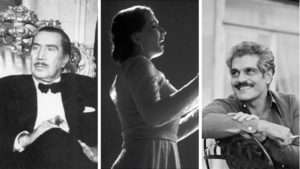There are shows you watch, and then there are shows that watch you back. Catalog isn’t just about a widowed father learning to parent—it’s about grief knocking on your door and refusing to leave.
Written by Ayman Wattar and directed by Walid El Halafawi, this series hits hard because it clearly comes from a deeply personal place. It doesn’t ask you to feel; it demands it.
At one point, I wanted to stop watching—not because it was bad, but because it was too real. But that’s what makes it great.
Catalog doesn’t entertain as much as it exposes—and in doing so, it leaves a mark.
What Worked:
The Writing Gave Us Space to Hurt
This wasn’t a sugar-coated story. It dragged you through uncomfortable emotions. It made you sit with loss, guilt, parenting regrets, and generational wounds. And even when it hurt, it felt necessary.
It Felt Personal—and That Changed Everything
You could tell this wasn’t a project written in a boardroom. Wattar and El Halafawi’s fingerprints are on every scene. The grief was real. The awkward moments were real. The parenting struggles were too real. That authenticity is rare.
Mohamed Farrag and the Cast Were Unstoppable
Farrag delivered what might be one of his most vulnerable and grounded performances to date. But the surprise? Khaled Kamal.
His role as Captain Hanafy became one of the most lovable characters we’ve seen in a while—equal parts kind, chaotic, and deeply relatable.
And Samah Anwar? Her comeback gave us everything: presence, wit, and pure badass energy. She didn’t miss.
The Guest Stars Were a Nice Touch, But Hanan Motawie Deserves Her Flowers
Her guest appearance was short but devastating. It left us sobbing. There’s no over-explaining this—just raw, gut-punch acting that forced us to pause and breathe.
What Didn’t Land:
A Few Clichés We’ve Seen Before
Bayoumi Fouad playing a Christian character felt like a casting decision we’ve seen too often—almost formulaic. And while the molokheya scene was powerful for Egyptians, it lacked the subtlety needed to make it accessible to international viewers. It deserved more nuance.
While Interesting, the Guest Stars Were Hit or Miss
While Hanan Motawie’s scene was unforgettable, others didn’t work as well. Bibo’s scene, for instance, was emotional in intent, but the acting couldn’t keep up with the moment. It was a misstep that could’ve been avoided with a less demanding role.
Final Verdict:
You don’t need to scroll far on social media to see how deeply Catalog is resonating. Egyptian audiences are emotional, nostalgic, and floored by the realism—especially in how illness, class, and family are portrayed.
Catalog isn’t an easy watch, but it’s an essential one. It’s the kind of art that holds up a mirror and doesn’t let you look away.
Yes, it gets heavy.
Yes, it has flaws.
But it leaves you different from when you started—and that’s the best kind of storytelling.
Rating: ★★★★☆
Watch it when you’re ready to cry, reflect, and maybe call your parents after.





